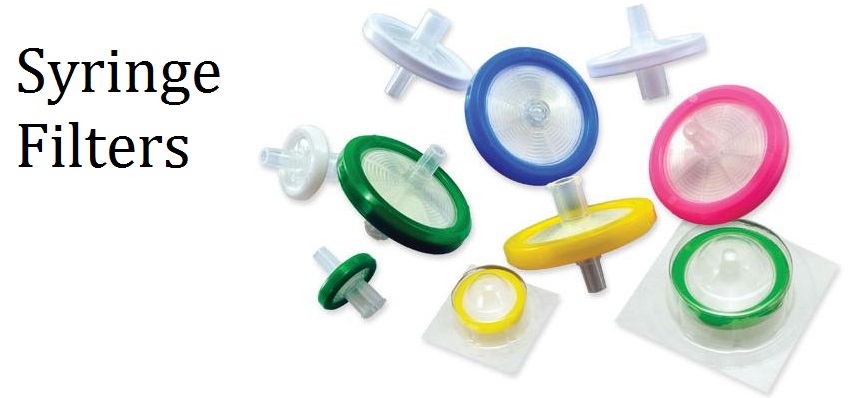What is Syringe Filters? What is the Importance and Application!
Syringe filter is a one-time usage cartridge. It basically designed to attach the end of a syringe to use, syringe filters have a Luer locking system to fit perfectly with the syringe. This fitting system may vary universally. The usage of the needle is purely optional, based on the requirement it can fix with Syringe which is having Assurance filter.
Usually, syringe filters consists of a plastic housing with a membrane usually act as a filter. This membrane filters main work as a purifier, maybe for a clean liquid to draw through the filter die forcing the liquid to pass through the membrane filter.
Usually, syringe filters consists of a plastic housing with a membrane usually act as a filter. This membrane filters main work as a purifier, maybe for a clean liquid to draw through the filter die forcing the liquid to pass through the membrane filter.
The most common membrane syringe filters size ranges from 0.2 or 0.22 µm. Another size used is 0.45 µm. This size Ranges are enough for providing a good amount of results, especially in HPLC use. The smallest size micro filters used in the sterile syringe having the size of 0.02 µm. The membrane filter diameter of 10 mm, 30 mm and 25 mm are the most commonly used sizes. This syringe filters basically manufacturer with the material called polypropylene and nylon. Depending upon the specific purpose of the filters the material used memory. The syringe filters and its usage will be detailed in a wall chart which prescribes the type of material manufacture and the purpose of usage. This information is sufficient for the usage and understanding in a better way of syringe filter usability.
Few of the syringe filters specifically manufactured for the filtration of particles from a sample used in the process of HPLC, This is due to the narrow bore and high pressure within. These filters are affordable specifically for a smaller volume where they might be losses by soaking up filter papers and some other reasons. Syringe filters are also available in other forms which specifically manufactured for the purpose of filtering gases and bacteria removal process.
Most of the cases syringe filters are used in solid drugs filtration process prayer to the injection. The most common filtration process in recreational drugs involves methadone, Amphetamines, Spores AC bacteria. This filters thickness Ranges from 0.1 µm.
Few of the syringe filters specifically manufactured for the filtration of particles from a sample used in the process of HPLC, This is due to the narrow bore and high pressure within. These filters are affordable specifically for a smaller volume where they might be losses by soaking up filter papers and some other reasons. Syringe filters are also available in other forms which specifically manufactured for the purpose of filtering gases and bacteria removal process.
Most of the cases syringe filters are used in solid drugs filtration process prayer to the injection. The most common filtration process in recreational drugs involves methadone, Amphetamines, Spores AC bacteria. This filters thickness Ranges from 0.1 µm.
The tablets which are less soluble in any of the Chemicals or water prefer to use these kinds of filters for the filtration process like the tablet such as diazepam. Pencil sketches the enhancer process for bacterial removal while injecting search tablets through the membrane filters which help in removal of bacteria. These syringe filters basically manufacture depends upon the requirement and the mode of filtration process performs. Instead of going through the standard membrane filters it is better to prefer the membrane filters based on the material used and the specific purpose which involved in the filtration process. These detailing will give complete filtration process without having any inclusions.




The membrane filter are the best solution for purify different chemicals
ReplyDeletethat are easy to use and will serve all your laboratory filtration needs .We offer a wide variety of syringe filters and pore sizes, as well as a selection of filter diameters to handle any sample volume.